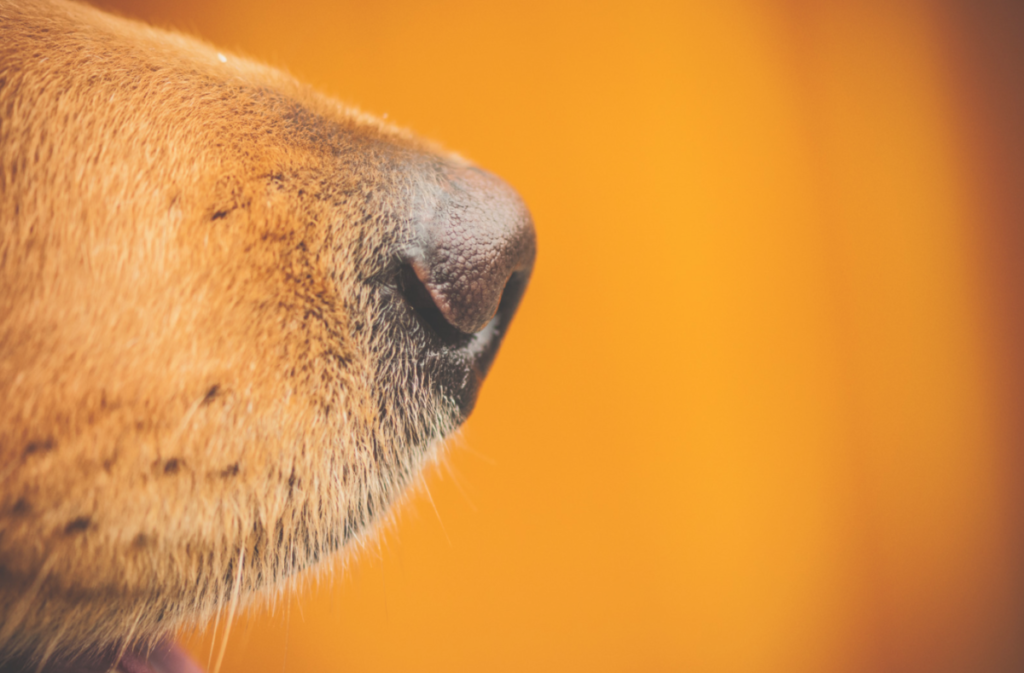
A common old adage, “a warm, dry nose is a sign of a sick dog,” though partially inaccurate, may have some truth to it. However, just like most breeds, they may have a dry nose that may quickly pass by and be forgotten or a persistent one. Both extremes are what this article will focus on.
Table of Contents
Why is my golden retriever’s nose dry?
A dry nose may be a sign of old age, exposure to extreme weather elements such as wind or extreme sunlight, dehydration from strenuous exercise, a quick nap that the retriever just had, a fever, auto-immune diseases, allergies or even behavioral reasons such as submissions.
So should a dry nose on your retriever dog worry you, yes and no?
Read on. But first, a brief of the retriever
Brief of Golden Retrievers
Bred for generations, from carefully selected sporting and hunting breeds, Golden retrievers embody the perfect prized pets one can have. So perfect and special are they that soon after their official recognition by AKC (American Kennel Club) in 1925, they have been pets to two former OVAL office holders, rank as the 3rd most popular breed, and stand 4th as the most intelligent dogs. These achievements are no mean feat for such a recent breed.
Though diverse, their trait description finds convergence in the most favorable of adjectives that include friendly, devoted, and intelligent. Their outgoing, playful, loyal, and outgoing nature endear them to many. Add this to their heightened sniffing ability (10,000 to 100,000 times more than humans) sensitive nature, ability to swim, easy to train capability and you have an irreplaceable friend for a decade plus of their 12-14-year lifespan.
Simply put, Golden retrievers are an all-round water and land retriever that should always function optimally. And that is why we compiled this detailed help to address their dry nose when and if they get one.
Why Is A Wet Nose Important?
Of all the senses in dogs, the scent is the most developed primary sense. So developed is it that their olfactory region is 40% larger than that of humans. This implies that dogs perceive and respond to changes in their surroundings through what they smell. And this has a direct link to their wet nose. Here is how.
Scents picked through the nose are carried through the nasal cavity before being directed to the brain for interpretation. The brain then decides that it will be transmitted to effector organs such as muscles for appropriate action. This is not all, though, for the same nose is used for sweating.
How Do Dogs Sweat?
With a double coat (thick undercoat and long fine topcoat) and over 98% of a Golden Retriever covered in fur, temperature regulation can be quite a hassle. And that is where the wet nose comes in.
With little surface left to lose heat, the nose of a dog is packed with numerous sweat glands through which the dog can lose heat when it is too hot. Other heat loss surfaces include the tongue that the retriever may use to constantly lick its nose.
Why Dogs Lick Their Noses Throughout The Day
Located on the roof of the mouth is a special semi-chemical organ called Jacobsen’s organ.
As a scent organ, the nose gathers information through chemicals that diffuse through the wet nose before transmission to the brain.
Licking the nose therefore ensures that the nose stays wet plus transfers diffused chemicals to the Jacobsen’s organ to enhance the sense of smell. This ensures that the dog does not miss anything from within and without its surroundings.
Additionally, when dogs lick their noses, they smear saliva on the nose. As the saliva vaporizes, it takes with it some heat contributing to temperature regulation in the dog. For these reasons, Dogs will constantly lick their noses.
Running Nose In Golden Retrievers
With over 200 million smell receptors, scent is so big a deal to a dog’s life, a runny nose therefore is such a huge inconvenience.
Much as it may be something as simple as an excitement at the sight of food or your arrival, a runny nose can be a pointer to something serious.
Clear mucosal discharge need not worry you, however, smelly colored mucosal discharges warranty a trip to the vet. They may be something as simple as an allergy or something as serious as a cancer.
Causes and Remedies of a Dry Nose in Golden Retrievers
Extreme Weather Conditions
Prolonged exposure to the sun or extremely fast moving wind that is dry can dry the nose of your dog. In hot weather, with little to no heat loss surfaces, the tongue and nose are the sole heat loss surfaces.
Therefore, the moisture on the skin will evaporate to relieve the dog of some heat, and this will be quickly swept away by the dry wind.
Also, nearness to fireplaces or laying close to the floor heater in the winter can leave the dog’s nose dry.
This can, however, be quickly reversed by moving the retriever to a colder or humid place.
When to be concerned
Sunburn
Sunburns that leave the nose flaked, with sores, scabs, or a persistent and prolonged dry nose should be cause for worry and should warrant an immediate vet-visit.
Strenuous exercise
Just like in humans, vigorous and lengthy exercise can leave your dog both exhausted and dehydrated. A dry nose after an exercise should not, therefore, be cause for concern.
It just had a quick nap
For survival reasons and better understanding and processing of the environment around them, dogs will constantly lick their nose. They, however, don’t lick them when asleep.
So give your dog about ten or so minutes before the skin -around the nose – can be restored to its moist, supple and flexible state.
Fever
The causes of fever in a dog may include;
• Vaccination– low grade and occurs 24 to 48 hours after vaccination
• Infection – this can be viral, fungal or bacterial.
• Toxins – consumption of poisonous chemicals including human antidepressants.
But exactly, what is a fever?
In its simplest definition, a fever is an elevation of body temperature. To regulate it, a dog may lose excessive heat through vaporization of saliva through the tongue and moisture on the nose. But it is not as simple as a 1, 2 and 3.
Just like most canines, and unlike humans, the temperature of your dog is almost always slightly higher than yours. So how do you tell if it is a fever?
Simply insert a lubricated digital thermometer into its rectal opening. Caution though, you may have to immobilize or restrain it first.
Your dog’s immune system can often withstand the common flu. And this can disappear within a day or two. However, should the fever be accompanied with any or some of these; depressed mood, shivering, little to no appetite, nasal discharge, and lethargy, you may have to prep it for a vet-visit.
Auto-immune Disease
Lupus is not unique to the over 1.5 Million people it affects in America. Dogs too are victims. The chronic auto-immune disease is two pronged with the most common and less serious being discoid lupus erythematosus(DLE), and the other more serious one systemic lupus erythematosus (SLE).
Lupus though not fully understood is characterized, by among other symptoms a dry, flaky and scaly skin around the nose. The former type has been found to be aggregated by extensive exposure to extreme sunlight.
When to be concerned
DLE is less serious and is often accompanied with mild pain and discomfort. SLE is however more serious and if not checked and arrested in time can lead to progressive systemic and organ failure. Best counsel, seek medical advice soonest
